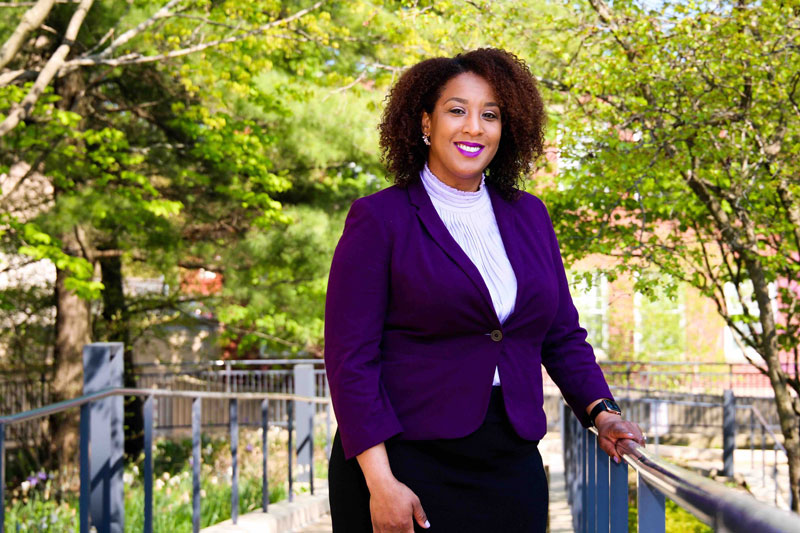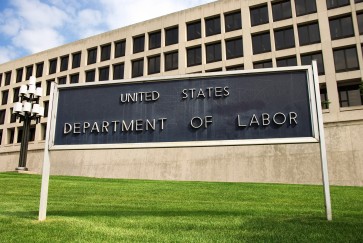In the most recent update on the University’s social justice commitments, Northwestern leadership announced the creation of a cross-University program to develop organizational capability for restorative justice practices. The program will be housed in the Office of Equity and will be available to students, staff and faculty. Program development is underway with the program sponsors, and facilitator training will begin this month, with the program anticipated to launch in Fall 2021.
Restorative practices were introduced to the Northwestern community in August 2017 by Social Justice Education staff. Since then, Social Justice Education, Office of Community Standards, Office of Equity and Office of Human Resources have partnered to develop the practices into a University-wide program.
Northwestern Now spoke with TiShaunda McPherson, who was recently promoted to senior associate vice president for equity, to discuss the importance of implementing restorative justice practices at Northwestern.
What is restorative justice?
Restorative justice is a theory rooted in Indigenous teachings that emphasize repairing harm and community reintegration as foundational principles of justice. It promotes genuine accountability by focusing on the importance of trusted and equitable relationships, identifying and remedying harms to individuals and communities impacted by wrongdoing, and creating spaces for healing and reconciliation to build community.
When did these practices begin at Northwestern?
Rob Brown and Michele Lakemeyer, Director and former Assistant Director of Social Justice Education, respectively, introduced restorative practices to the Northwestern community in August 2017 and successfully sought funding to train approximately 50 staff members, some of whom remain active in circle facilitation.
Since that time, Lucas Christain, in the Office of Community Standards, and Karen Tamburro and Ish Orkar, in the Office of Equity, partnered with Rob to develop a proposal for a University-wide program. With support from Julie Payne-Kirchmeier, vice president for Student Affairs, we were able to secure approval to advance this initiative. Upon approval of the proposal, Manuel Cuevas-Trisán, vice president for Human Resources, graciously joined as a program sponsor. The collaboration between Social Justice Education, Office of Community Standards, Division of Student Affairs, Office of Equity and Office of Human Resources is an example of valued community partnerships, and I am grateful to each sponsor and their respective units for bringing this to Northwestern.
From an equity perspective, how do these practices make our campus a safer, more respectful place?
Restorative practices offer a unique opportunity to create a safe, inclusive and welcoming campus community in a couple ways. First, the attention to relationship building improves established connections and provides safe spaces to develop new ones. Second, when misconduct occurs, accountability for the behaviors is determined by considering the impact on those directly harmed and the whole community. This empowers those who had been victimized to inform responses to wrongdoing and provides space for those committing harms to make amends, learn, grow and evolve.
By providing opportunities for meaningful dialogue and repair of harm, restorative practices decrease the likelihood that misconduct will be repeated. These practices unite communities around common values and lead to greater well-being of both the individual and group.
How can using proactive restorative practice circles build community?
Facilitating proactive circles is one way to engage in intentional community building using a restorative lens. Proactive circles invite reflection on shared values and goals, demonstrate empathetic and respectful communication, and promote authentic and trusted relationship development. When integrated into academic and professional environments, proactive circles strengthen interconnectedness, feelings of belonging and belief that one matters to and in the community, all of which are necessary for group cohesion and well-being.
How does implementing University-wide restorative justice practices ladder up to Northwestern’s commitment to social justice?
Restorative practices directly align with the University’s social justice commitments, in that these practices help each of us develop and integrate inclusive, welcoming and respectful communications in our interactions with one another, and expand the depth of our connections. Restorative practices provide the mechanism by which we, as a community, intentionally model equitable and just relationships by removing power dynamics and inviting all within the community to have a seat at the proverbial table. These practices allow for a stronger community by recognizing those who have been marginalized, bringing them into dialogue as equal partners, and valuing diversity as beneficial to the collective. Finally, restorative practices provide processes for identifying and addressing harms, both individual and institutional, that perpetuate barriers to a truly inclusive campus community.
Proactive and responsive circles, in addition to other restorative practices, provide another mechanism for addressing systemic oppression and disenfranchisement by de-centering what may be viewed as “the norm,” and encouraging openness to different experiences and perspectives, while also directly responding to and repairing harms that are committed. There are numerous advantages and opportunities for implementing restorative practices at Northwestern, and I am certain we will see these benefits in both the short term and long run.


